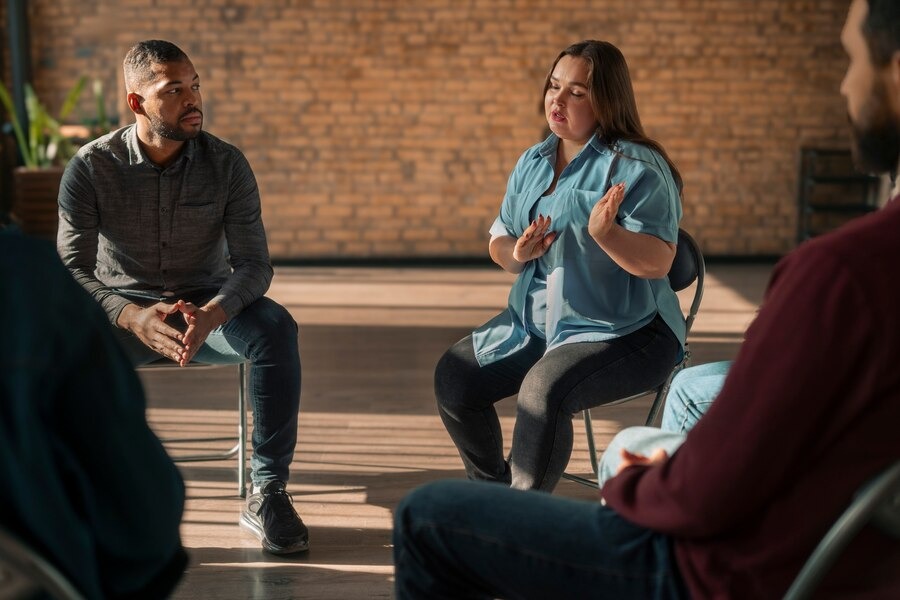Guiding Through Life Changes alongside a Psychosocial Recovery Coach

Navigating life changes can be challenging, especially when facing mental health or psychosocial challenges. In such times, having the support of a psychosocial recovery coach can make a significant difference. These professionals offer guidance, encouragement, and practical strategies to help individuals overcome obstacles, build resilience, and embark on a journey of recovery and personal growth.
Understanding the Role of a Psychosocial Recovery Coach
A psychosocial recovery coach is a trained professional who supports and assists individuals experiencing mental health or psychosocial issues. Unlike traditional therapy, which focuses primarily on diagnosing and treating mental health conditions, a recovery coach takes a holistic approach to wellness, addressing the individual’s overall well-being and quality of life.
Key Responsibilities of a Psychosocial Recovery Coach
- Goal Setting and Action Planning: A recovery coach works collaboratively with clients to identify their goals and aspirations, whether it is improving relationships, pursuing education or employment opportunities, or enhancing overall well-being. Together, they develop actionable plans and strategies to achieve these goals, breaking them down into manageable steps.
- Emotional Support and Empowerment: One of the primary roles of a recovery coach is to provide emotional support and encouragement to clients during challenging times. They offer a non-judgmental space for clients to express their thoughts, feelings, and concerns, validating their experiences and empowering them to take control of their lives.
- Skill Building and Coping Strategies: Recovery coaches equip clients with practical skills and coping strategies to manage stress, anxiety, and other psychosocial challenges effectively. This may include teaching relaxation techniques, problem-solving skills, assertiveness training, and mindfulness practices, empowering clients to navigate life’s ups and downs with resilience and confidence.
- Advocacy and Resource Referral: Recovery coaches advocate for clients’ rights and interests, helping them access essential services, resources, and community supports. Whether it’s connecting clients with mental health services, housing assistance, employment programs, or peer support groups, recovery coaches ensure that clients have access to the resources they need to thrive.
The Benefits of Working with a Psychosocial Recovery Coach
- Holistic Support: Unlike traditional mental health services, which may focus solely on symptom management, a recovery coach takes a holistic approach to wellness, addressing all aspects of the individual’s life, including relationships, employment, housing, and personal fulfilment.
- Empowerment and Self-Discovery: Working with a recovery coach empowers individuals to take an active role in their recovery journey, fostering a sense of self-efficacy, autonomy, and personal responsibility. Through self-reflection and exploration, clients gain insight into their strengths, values, and goals, paving the way for meaningful personal growth and transformation.
- Flexible and Person-Centred Approach: Recovery coaching is highly flexible and adaptable to the individual needs and preferences of each client. Coaches tailor their approach to meet clients where they are, respecting their unique experiences, backgrounds, and cultural values. This person-centred approach ensures that clients receive support that is relevant, meaningful, and empowering.
- Long-Term Recovery and Wellness: By focusing on building resilience, coping skills, and support networks, recovery coaching promotes long-term recovery and wellness. Clients learn to develop sustainable habits and strategies for maintaining their well-being, even in the face of life’s challenges and setbacks.
Conclusion
By providing holistic support, emotional encouragement, practical skills, and advocacy, recovery coaches help clients navigate the complexities of recovery and embark on a journey of self-discovery, growth, and well-being. If you or someone you know is facing mental health or ndis support coordination provider, consider seeking support from a qualified psychosocial recovery coach to help navigate the path to recovery and wellness.






